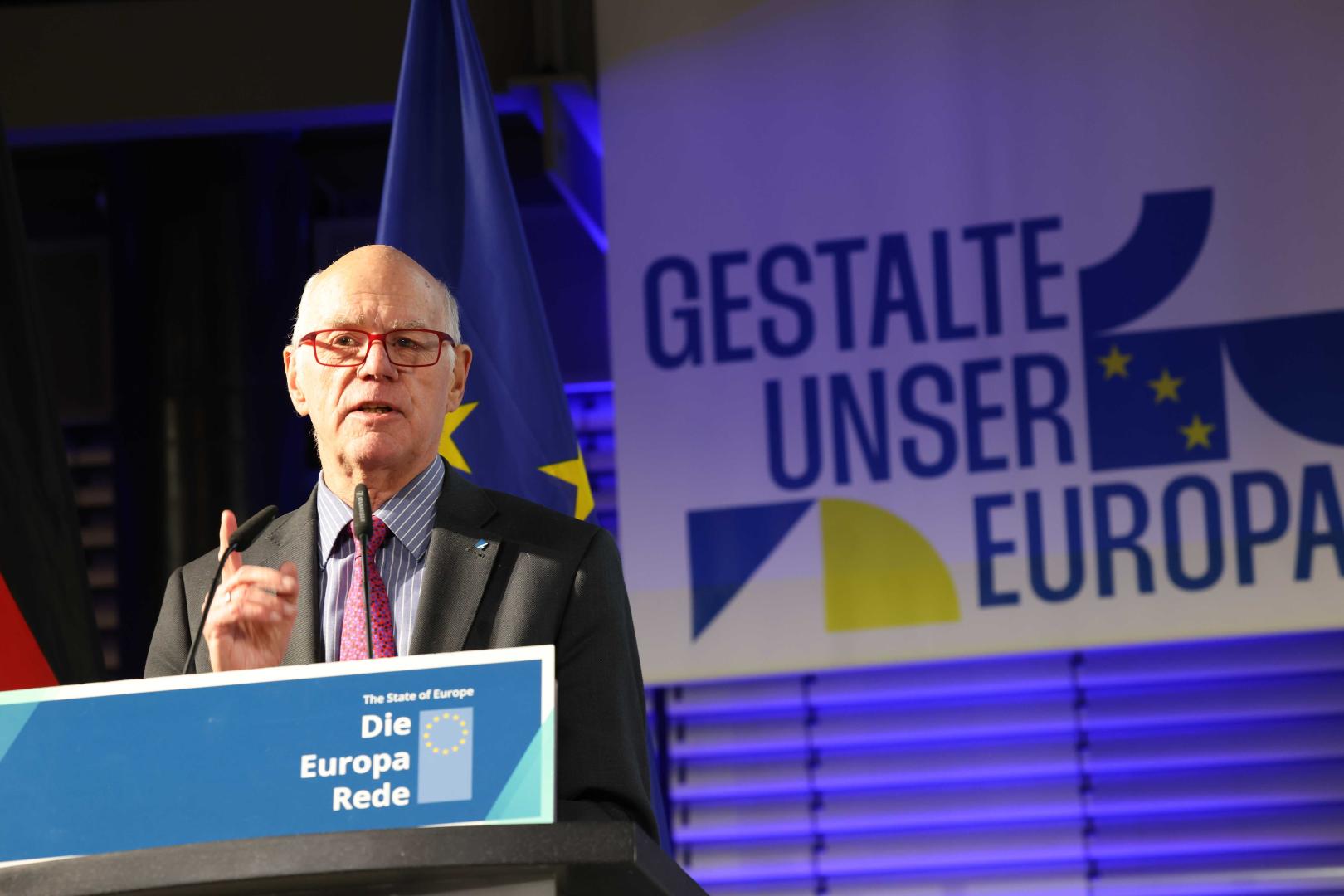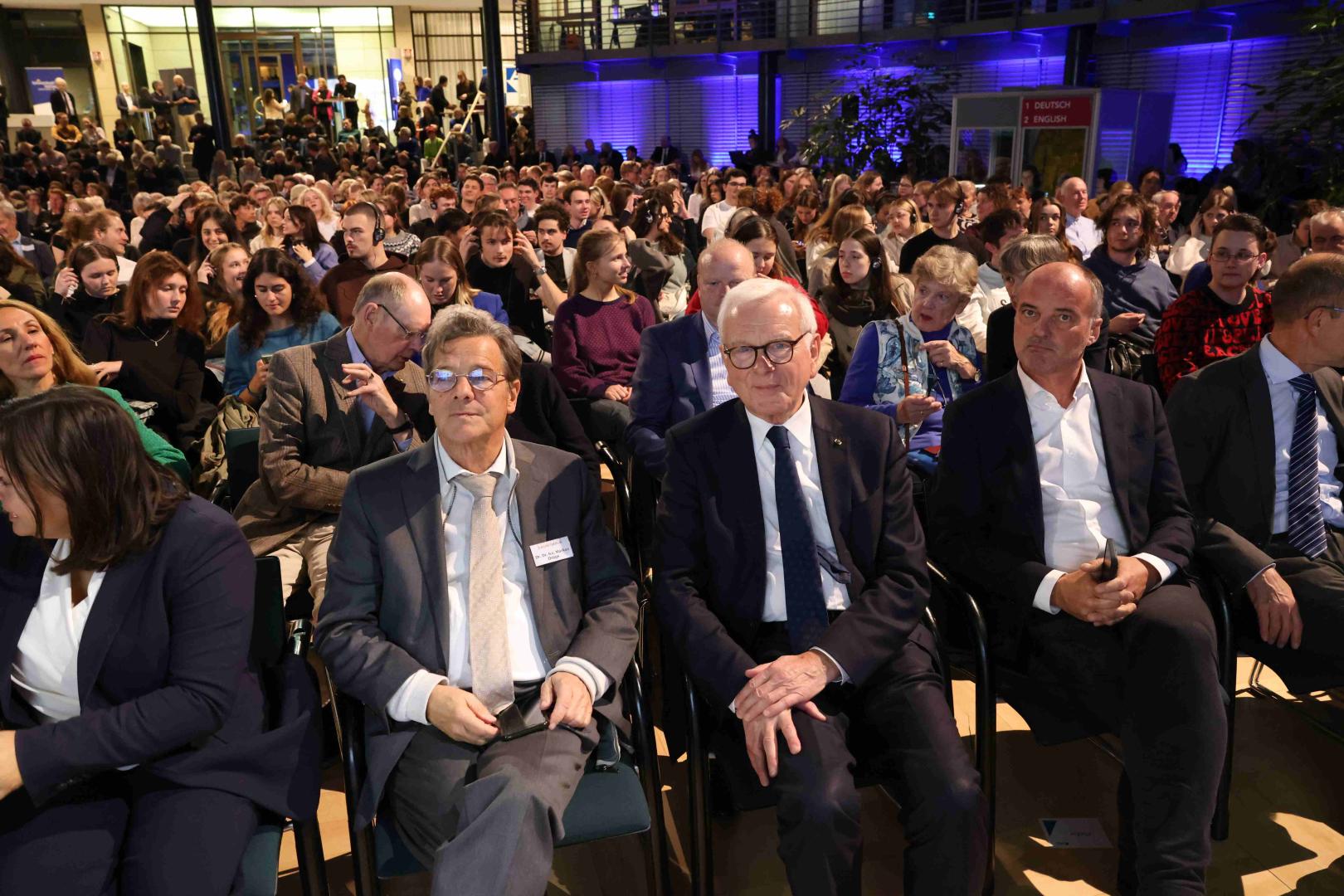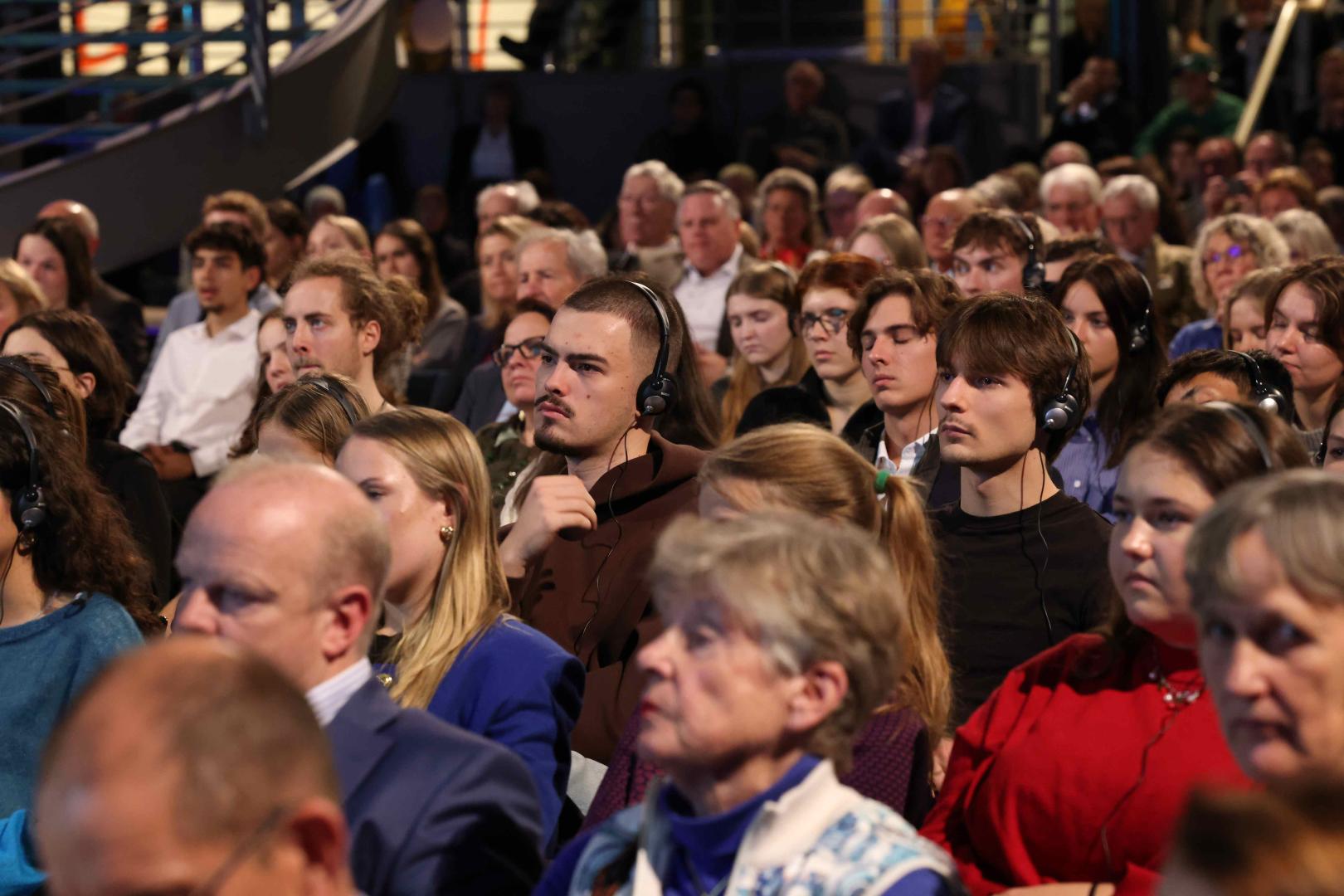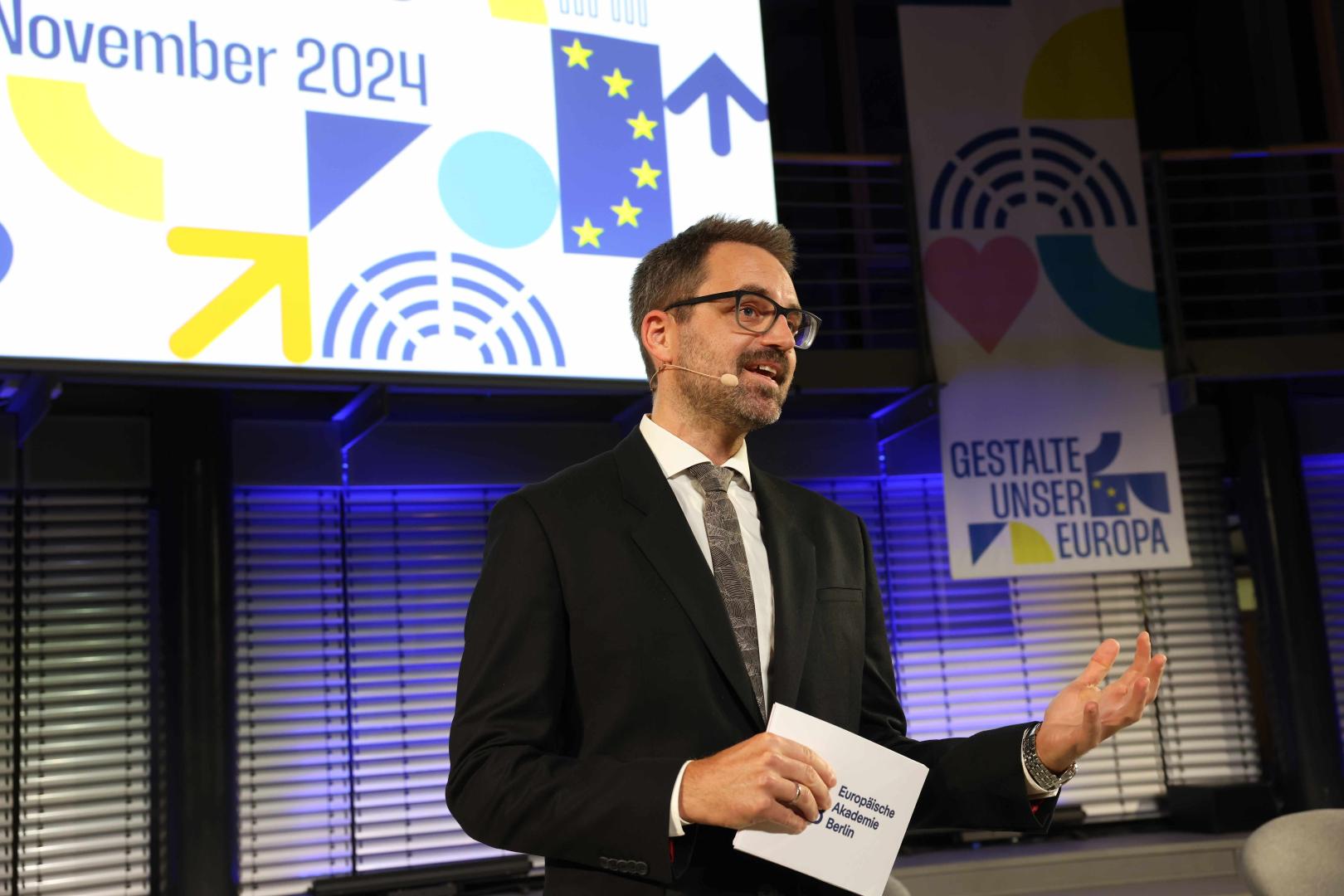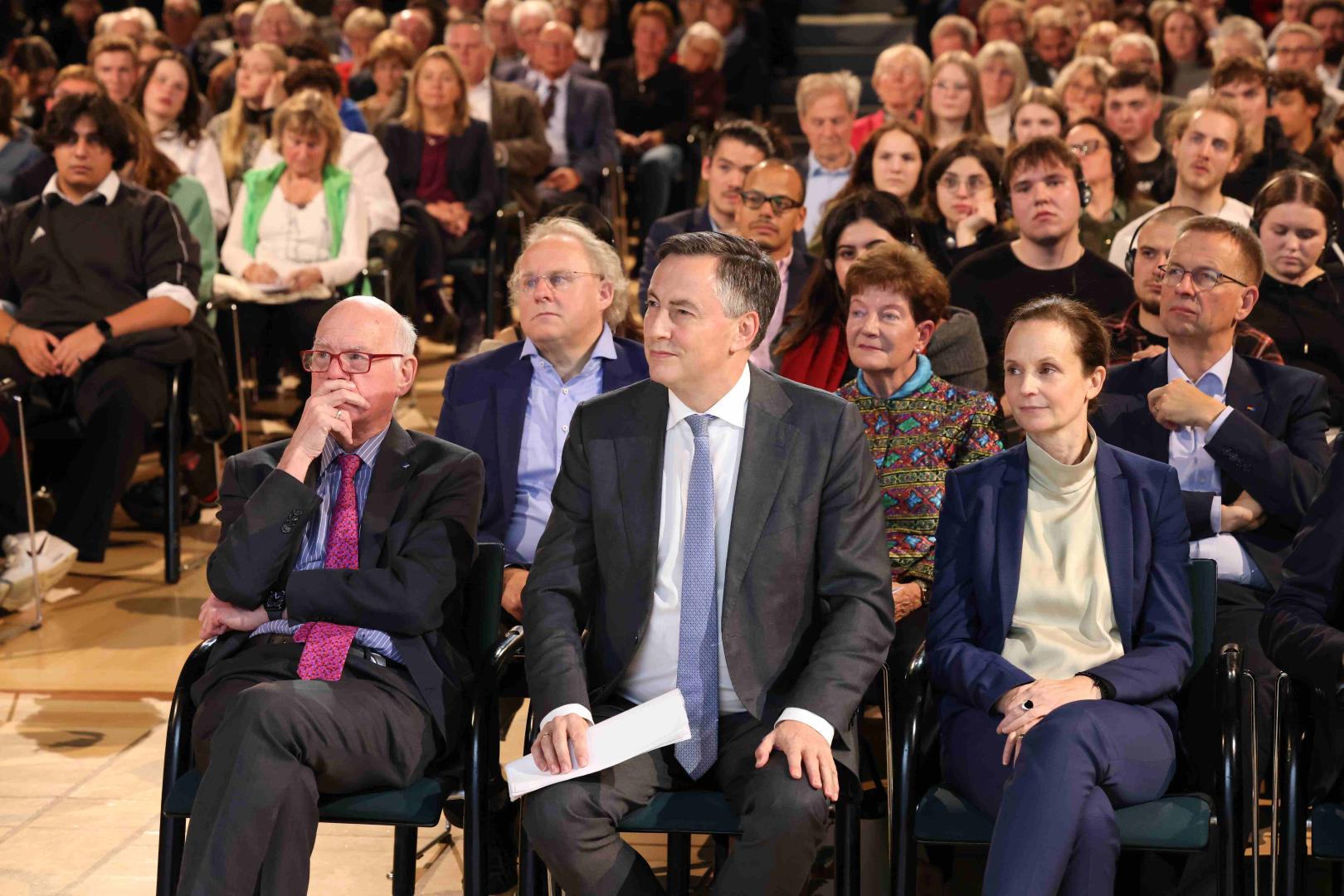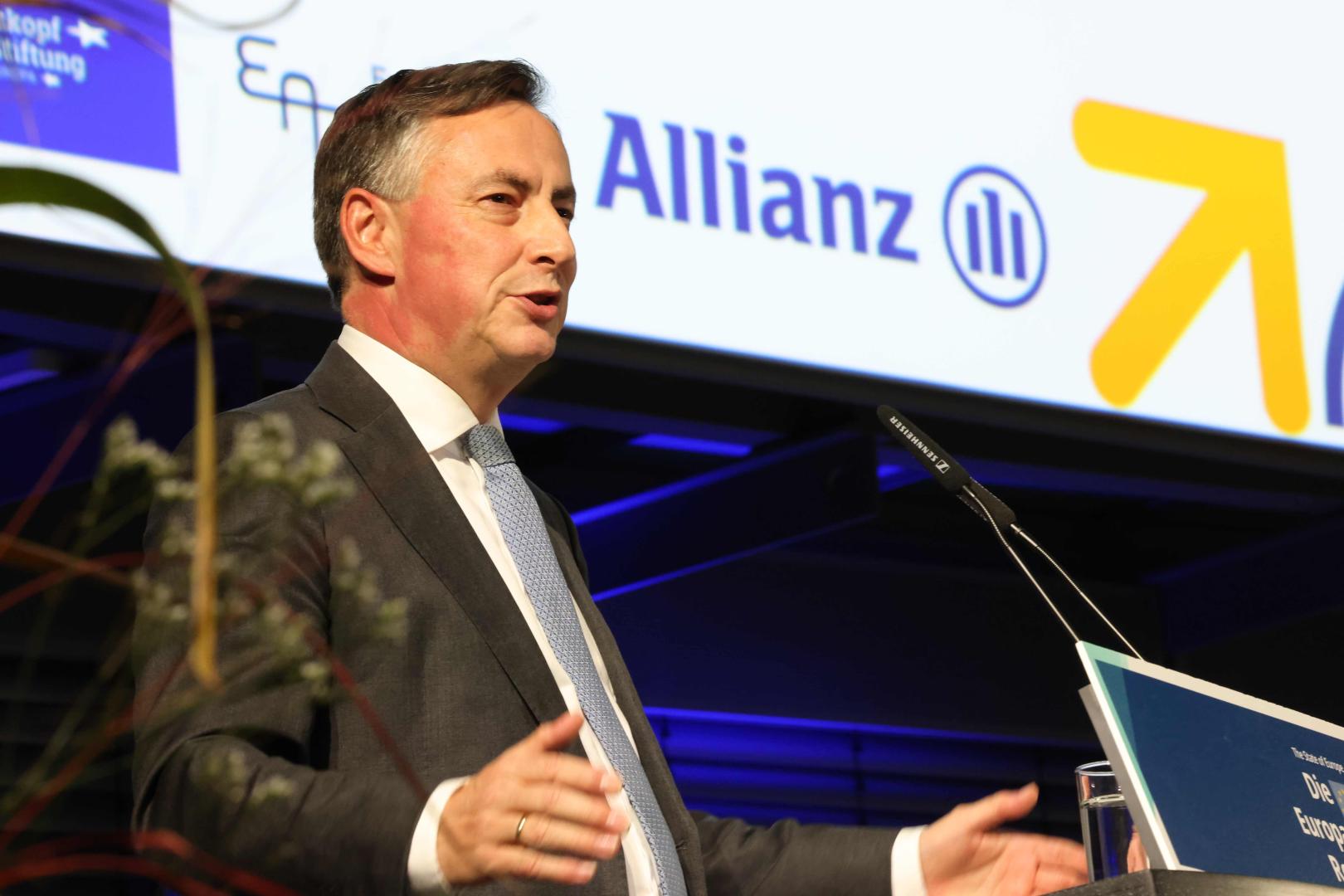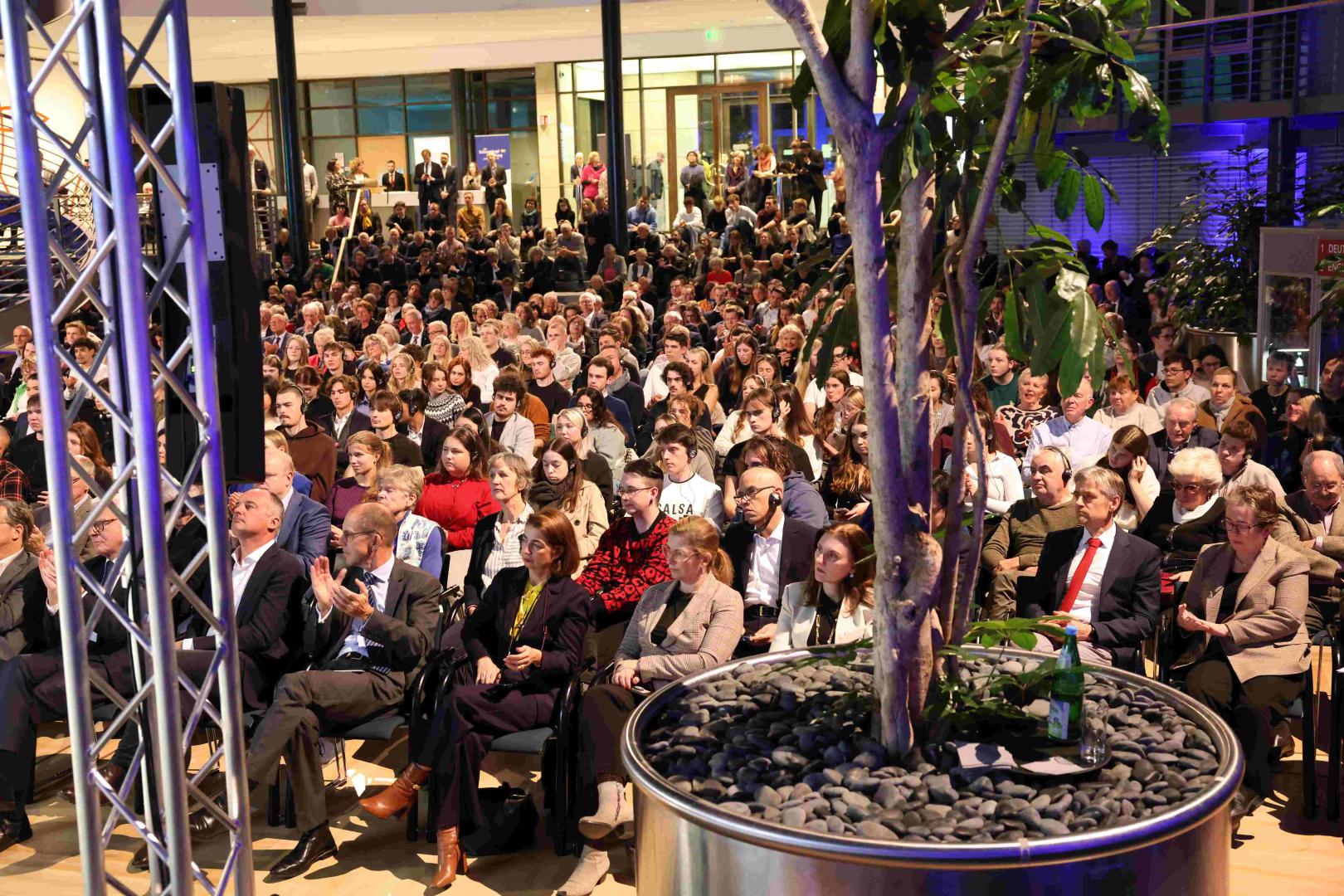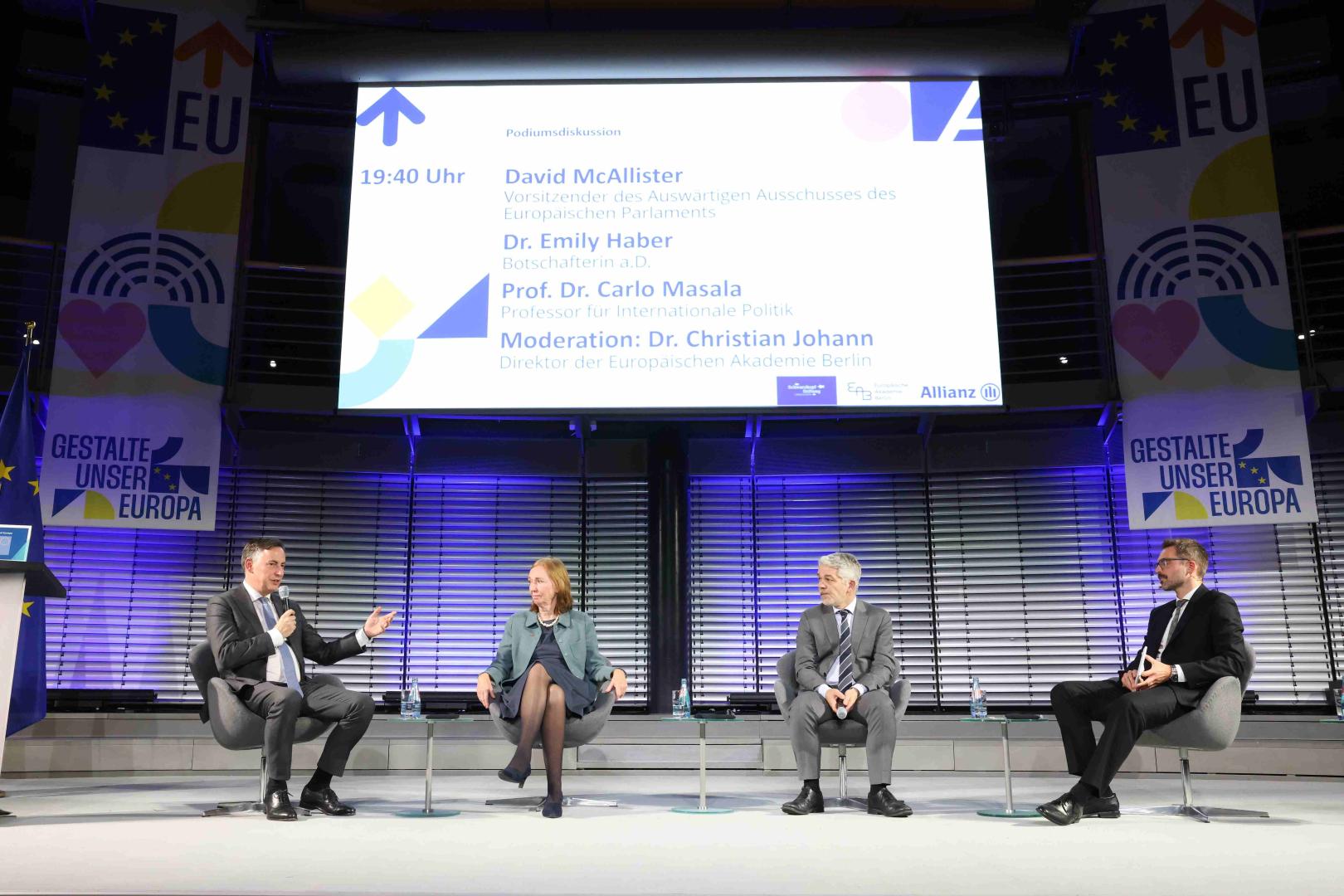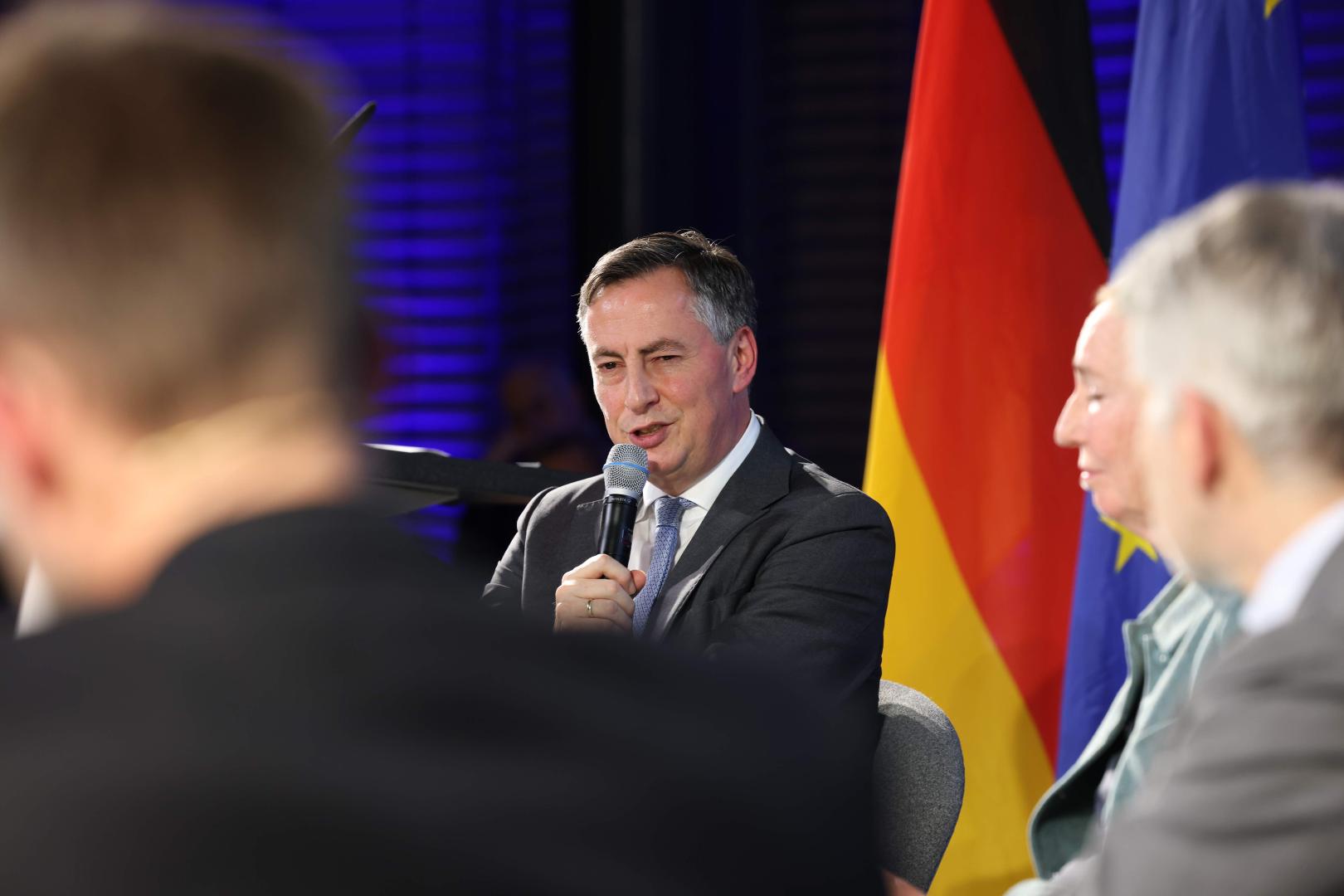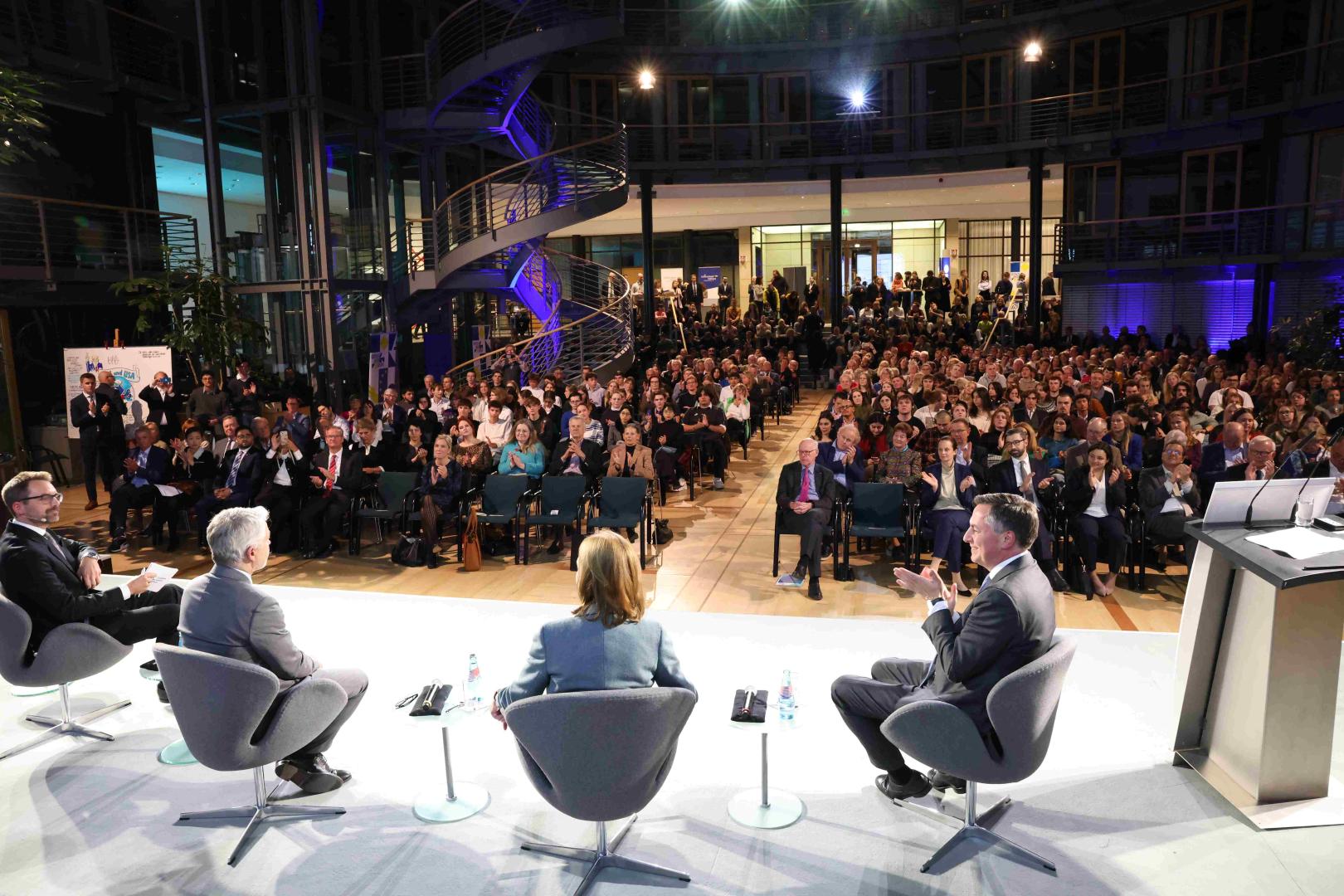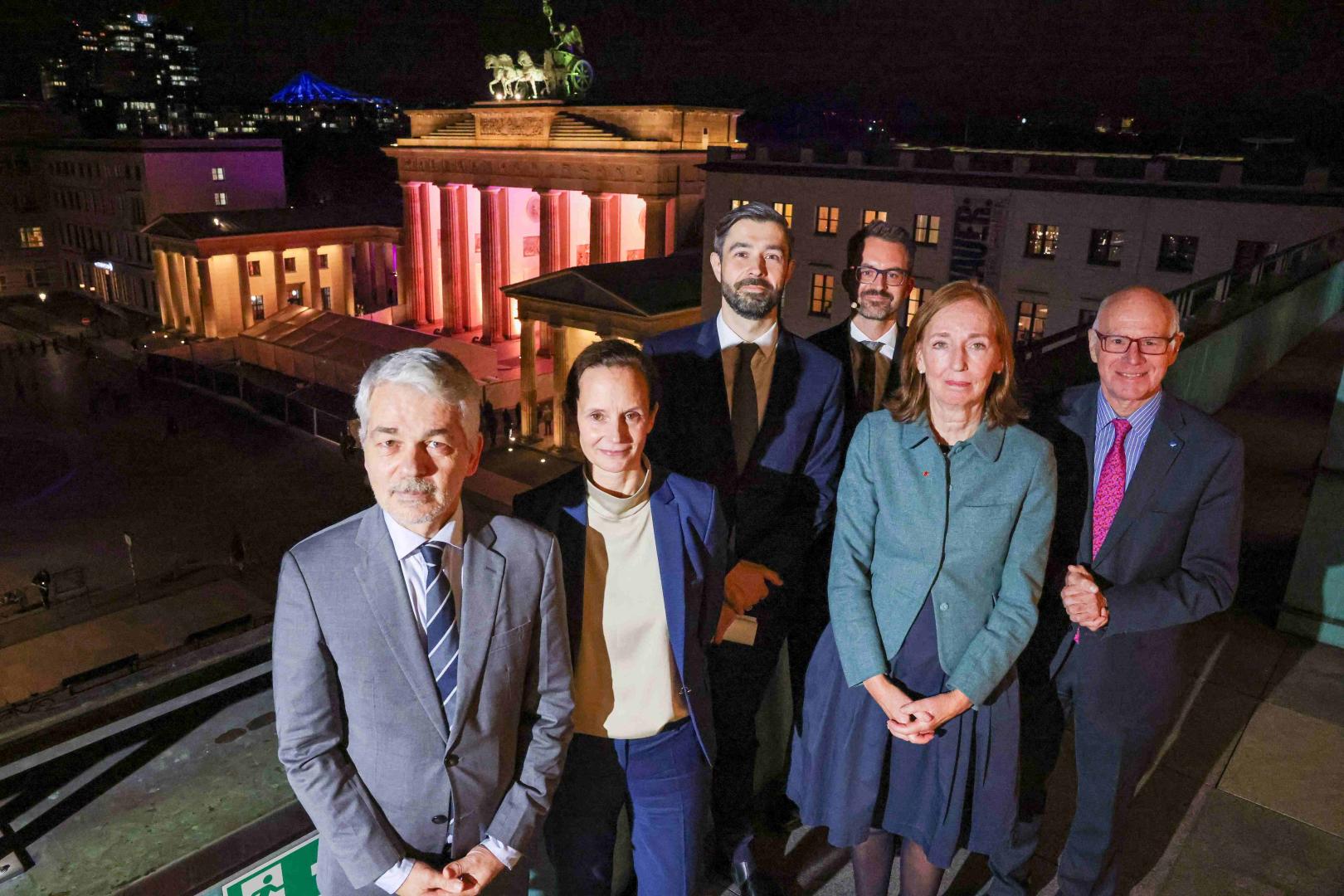Europe must be able to help itself again
David McAllister opened the State of Europe with a quote from Konrad Adenauer (at a CSU event in Munich on 3 April 1950): ‘What does Europe live on? It lives by the grace of the United States. It will not always stay that way. One day the moment will come and must come when this Europe can help itself again and must stand on its own two feet.’
McAllister warned that Europe must become capable of global politics, particularly in the Common Foreign and Security Policy, and thus strengthen the European pillar in NATO. With regard to Ukraine, he emphasised that a stop of arms deliveries would have catastrophic consequences for the European security architecture and that Vladimir Putin would not be satisfied with territorial gains in Ukraine.
‘Prosperity, security and freedom are not natural states’
McAllister emphasised that the EU must be united internally in order to develop strength externally: ‘Nowhere else in the world do people live in such security, freedom and prosperity as in Europe. We will not allow the radicals on the far right and far left to destroy our united Europe. Prosperity, security and freedom are not natural states; they must be defended anew every day.’ To this end, the EU must overcome challenges in the areas of competitiveness, climate policy, migration policy, security policy and the EU's institutional capacity to act with regard to enlargement. The USA remains the most important security and trading partner.
‘We are seeing a real shift in the United States’
In the subsequent panel discussion - moderated by Dr Christian Johann, Director of the European Academy Berlin - Dr Emily Haber, former German Ambassador to the USA, made it clear that a fundamental political change is taking place in the United States: ‘We are dealing with a structural change, not a cyclical one. We are in a completely new experimental set-up. We are seeing a real shift in the United States.’ Donald Trump is the voice of this change, Haber explained.
Prof. Dr Carlo Masala, Professor of International Politics at the Faculty of Political and Social Sciences at the University of the Bundeswehr Munich, emphasised in the discussion that ‘Europeans must put more money on the table to keep NATO alive. Trump will not keep the EU alive on the issue of security if there is nothing in return.’ There is a danger that the EU member states will allow themselves to be divided. According to David McAllister, the answer must be for the EU to gain the ability to act in foreign and security policy that it has in the area of trade policy.
The State of Europe was organised in cooperation with Allianz SE, the Schwarzkopf Foundation Young Europe and the European Academy Berlin.
Topics
About this series
The Konrad-Adenauer-Stiftung, its educational institutions, centres and foreign offices, offer several thousand events on various subjects each year. We provide up to date and exclusive reports on selected conferences, events and symposia at www.kas.de. In addition to a summary of the contents, you can also find additional material such as pictures, speeches, videos or audio clips.



